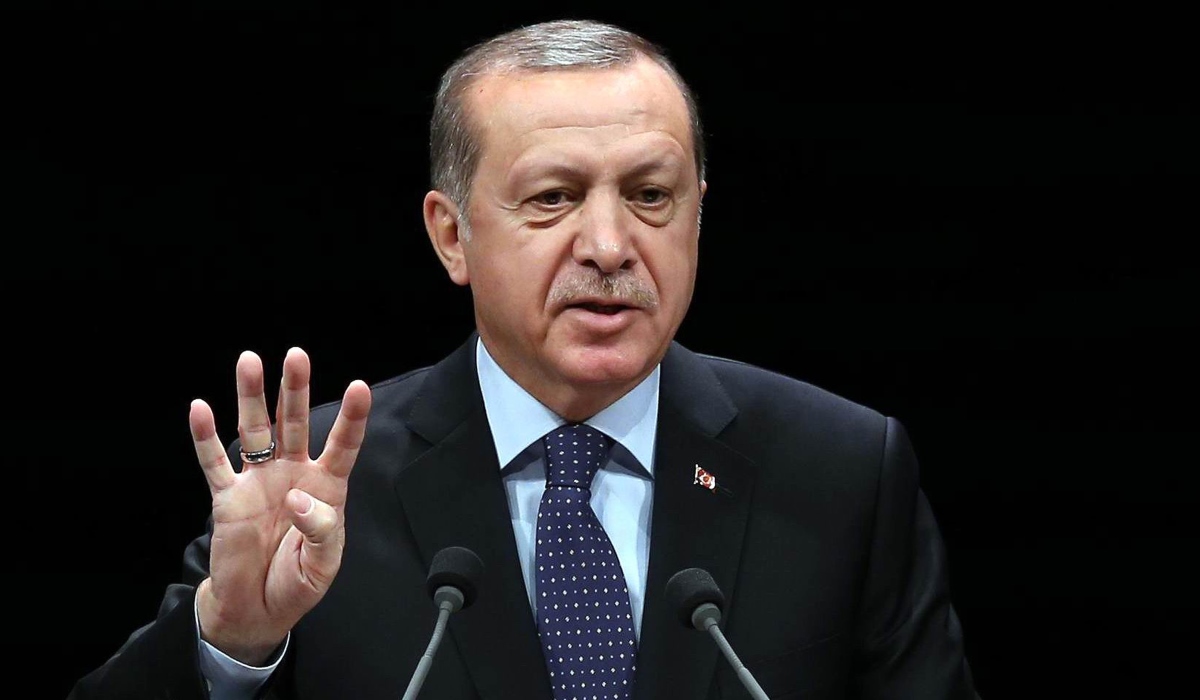
The Root Cause of New Nationalism is the West, Not Turkey
Defining Erdoğan's political vision, which has found a wide response in Turkey, as "ethnic or Islamic nationalism," is a big mistake. Erdoğan's political vision could be described as "civic nationalism" at best.
Share
The Economist published an article titled, "Trump's World: New Nationalism." In this article, the idea is that Donald Trump, who won the election with his "Make America Great Again" campaign, will attempt to overturn politics that he regards as "faulty globalization." Including a comparison between Trump and Ronald Reagan, the article claims that where Reagan was optimistic, Trump is angry and that he views the world through this window. In the article, Trump's presidency is described as "welcome to the new nationalism," and continues with, "For the first time since the second world war, the great and rising powers are simultaneously in thrall to various sorts of chauvinism."
Appearing in the "Leaders" section of the magazine, Russia, China and Turkey are shown as the main actors in Trump's "new nationalist world" in this article. The author writes, "Like Mr. Trump, leaders of countries such as Russia, China and Turkey embrace a pessimistic view that foreign affairs are often a zero-sum game in which global interests compete with national ones." This is followed by the claim that this great change is making the world an even more dangerous place.
The Economist touches on the effects of this wave, which it refers to as new nationalism, on Europe. But in an extremely one-sided manner, it does not place the political transformations occurring in European countries into the source of this "new nationalism."
However, what is actually happening is not so cut and dry. We no longer live in a world singing happy songs of globalization. The world we live in is no longer the world it was 10 years ago. We now have in front of us a world politics where harsh identity-based attitudes are dominant, new nationalisms are on the rise, and where right-wing conservative ideology is represented in its different varieties. One of the biggest societal dynamics that feeds into this politics is the rise of racism, ethnic nationalism and the extreme right. Political actors are racing with each other to become the representative of this societal trend. This situation is currently most visible in the "liberal Western bloc."
Those regarding the West as a political and cultural union and the concrete representative of liberal values and practices insisted on not accepting the changes that have occurred in the past decade. But it was the transformation of the West's socio-political reality that lay at the heart of the transformation in global politics. Both racism and xenophobia found a growing place for itself in the West. First in Europe, followed by the U.S., a political habitus in which harsh identity attitudes prevailed began to show itself. With the election of Donald Trump as president, liberal Western intellectuals finally woke up from the imaginary world they had been in, insistently denying the changes that had been happening for the past 10 years.
As can be seen concretely from the article in The Economist, Turkey is shown as one of the sources of the "new nationalism" that is on the rise the world over. Not only that, but alongside China and Russia. But this is nothing if not creating an "other" so as to ignore the processes that one creates themselves. The main argument that is brought forth is the following: "In Turkey, Recep Tayyip Erdoğan has turned away from the European Union and from peace talks with the Kurdish minority, in favor of strident, Islamic nationalism that is quick to detect insults and threats from abroad."
For the past five years, in many of the analyses that have been done on Turkey in the West, there has been a dominant theme of rising authoritarianism and anti- Erdoğan sentiment. This makes it more difficult to correctly grasp Turkey's new socio-political reality.
Defining Erdoğan's political vision, which has found a wide response in Turkey, as "ethnic or Islamic nationalism," is a big mistake. Erdoğan's political vision could be described as "civic nationalism" at best. And this means the appearance of a dynamism that will allow for a growth of common ground and structural changes in the societal and political spheres. When keeping in mind the multi-layered defeat of the July 15 coup attempt in Turkey and the wide participation in the political environment that appeared in its aftermath, we see not an "exclusionary nationalism" but rather an "encompassing discourse of nation." It is not a discourse that excludes any ethnic group, sect, or religious identification; on the contrary, we are speaking of a political vision that is based on citizenship in Turkey.
Erdoğan's Turkey is not one that favors "isolation" but rather "opening," it is not one that wants separation from its neighbors but rather integration. Alongside this, the tough challenge of terrorism that Turkey has had to face for the past four years, alone and without Western support, and in fact with the groups it is fighting receiving aid from the West whether logistical or ideological, has pushed Turkey to search for new venues of support. The determining factor here is not ideological motivation - it is a matter of interest and security worries. On top of this, Turkey sees in front of it parties that are led by harsher ideological discourses and is developing reactions toward them. For these reasons, those who are made uncomfortable by the "rising ethnic nationalism in the world," "the spread of xenophobia," and "violent identity conflicts" should first look at the West and see how the one-sided global policy created by the Western status quo is negatively affecting the world.
[Daily Sabah, November 25, 2016]
Tags »
Related Articles






